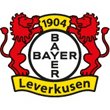CIES Study- Fans want more action against gender inequality, sexism and racism in football
The CIES Football Observatory has recently published their Monthly Report n°61 in January that asked football fans what they think of the professional game. The CIES Football Observatory, created in 2005, is a research group within the International Centre for Sports Studies (CIES), an independent study centre which specializes in the statistical analysis of football and wants to advance the frontiers of knowledge for the sustainable development of football worldwide.The CIES Football Observatory has become a reference point in the demographic analysis of the football players’ labour market, the technical analysis of player performance and the scientific estimation of transfer values.
The results of a questionnaire survey carried out between December 2020 and January 2021 were presented in their Monthly Report. The survey was answered by 2.061 individuals who were, for the vast majority, men (95%) who were, on average, 40.7 years old, very interested in football and in many cases from France (33.9%). The nine thematic areas investigated were match events, scheduling, spectacle, access to the spectacle, revenues, inequalities, abuses, gender, as well as transfers. The topics of gender and abuses showed particularly interesting results that are also very relevant for the CSR-work of clubs. Community programmes can tackle many of the issues in question.
Racism and homophobia in football
When asked about problems linked to football (such as doping or match-fixing) or about phenomena that are widely present in the society that are then expressed in football (such as racism and homophobia), respondents indicated that the societal problems are much more widespread than the sport-specific ones. 68.3% of participants agreed with the statement that there is too much racism in football. 61% stated that there is too much homophobia in football. Only a third of participants, 33.0% agreed with the statement that there is too much doping in football and even a bit less, 30.3% agreed with the statement that there is too much match-fixing. On the basis of the survey results, it might be concluded that racism and homophobia are more urgent issues.
Gender in football
Gender equality is a topic that is increasingly debated within society and also in football. More and more professional clubs have both men’s and women’s teams, female referees are getting involved on all levels and there is an increasing number of female coaches, scientists or analysts behind the scenes. However, women don’t have equal or equitable standing in football yet. The CIES research shows that fans are aware of this issue and consider that women do not yet occupy a sufficiently favourable position in the football sector. 79.8% of participants agreed that there should be more women in leadership positions in football. Almost seven out of ten (67.8%) participants think that women’s matches should be broadcast more widely. 65.6% think that female players should earn more money and six out of ten respondents (60.2%) indicated that there is too much sexism in football. This shows that fans are perceiving gender as a topic football can and should take more action and that it is not, as it often is presented, an irrelevant issue with little support from fans. Based on the results of the study, football fans show a very progressive attitude that seems to be bigger than that of the institutions concerned.
Overall, fans are very much in favour of the development of women’s football and urge an increase in the number of women in leadership positions. The respondents also acknowledge that racism and homophobia are not an isolated problem but very prevalent in society and football as part of it as well. The majority of fans indicated that these problems have to be addressed.
EFDN Programmes
EFDN implements projects actively improving the issues raised in the study. We would like to highlight two examples below.

Show Racism the Red Card is a anti-racism and anti-discrimination programme. Show Racism the Red Card utilises the social power of football and the high-profile status of football players to help tackle racism and other forms of discrimination in society. The project aims to raise awareness on diversity, foster social cohesion, educate on values and reduce physical and verbal violence linked to racism. The Show Racism the Red Card programme is a collaboration between the European Football for Development Netwerk (EFDN), professional football clubs such as Brentford FC Community Sports Trust, Chelsea FC Foundation, Club Brugge Foundation, Inter Campus, Rangers Charity Foundation, Fundacao Benfica, SV Werder Bremen, and project partner Geef Racisme de Rode Kaart. The programme is funded by the Erasmus+ Sport fund of the European Commission.

The Community Champions League is an EFDN project in partnership with nine community-engaged football clubs from the Netherlands, England, Scotland, Norway, Portugal, Hungary, Belgium and Germany. NAC Breda, Feyenoord, Aberdeen FC, Chelsea FC, Club Brugge, SV Werder Bremen, Vålerenga Fotball, Ferencvarosi TC and SL Benfica deliver the Pan-European programme in collaboration with EFDN.
The Community Champions League is a social street football competition organised locally in nine cities in eight different European countries, where the participating teams can win more points through Fair-Play, Fair Support and Volunteering in community activities than by winning their street football matches. With the aim of promoting social integration through sport, the Community Champions League provides the opportunity for people from different cultures to come together to build relationships and friendships while breaking down barriers through the prevention of violence, racism and intolerance in grassroots sports and their communities.




